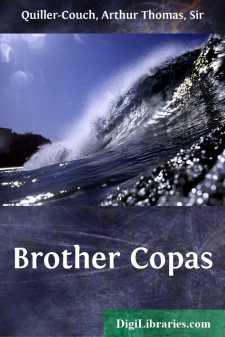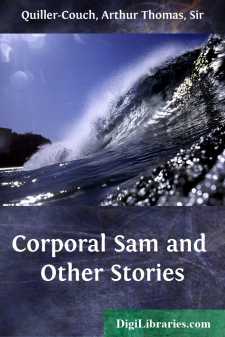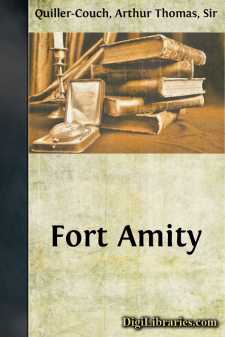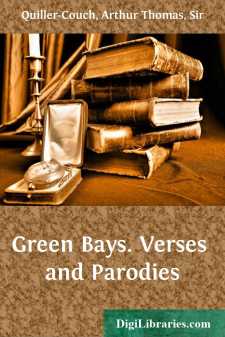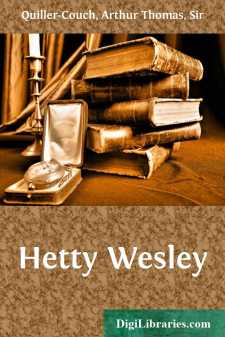Categories
- Antiques & Collectibles 13
- Architecture 36
- Art 48
- Bibles 22
- Biography & Autobiography 813
- Body, Mind & Spirit 142
- Business & Economics 28
- Children's Books 17
- Children's Fiction 14
- Computers 4
- Cooking 94
- Crafts & Hobbies 4
- Drama 346
- Education 46
- Family & Relationships 57
- Fiction 11829
- Games 19
- Gardening 17
- Health & Fitness 34
- History 1377
- House & Home 1
- Humor 147
- Juvenile Fiction 1873
- Juvenile Nonfiction 202
- Language Arts & Disciplines 88
- Law 16
- Literary Collections 686
- Literary Criticism 179
- Mathematics 13
- Medical 41
- Music 40
- Nature 179
- Non-Classifiable 1768
- Performing Arts 7
- Periodicals 1453
- Philosophy 64
- Photography 2
- Poetry 896
- Political Science 203
- Psychology 42
- Reference 154
- Religion 513
- Science 126
- Self-Help 84
- Social Science 81
- Sports & Recreation 34
- Study Aids 3
- Technology & Engineering 59
- Transportation 23
- Travel 463
- True Crime 29
Arthur Thomas Quiller-Couch
Arthur Thomas Quiller-Couch (1863-1944) was a renowned British writer and literary critic, best known for his influential work on English literature. He authored the classic "The Oxford Book of English Verse" and significantly contributed to the field of literary studies through his lectures at the University of Cambridge, where he held the position of King Edward VII Professor of English Literature. Quiller-Couch, often writing under the pen name "Q," was also a prolific novelist and short story writer, celebrated for his skillful storytelling and keen insight into human nature.
Author's Books:
Sort by:
CHAUCER March 17, 1894. Professor Skeat's Chaucer. After twenty-five years of close toil, Professor Skeat has completed his great edition of Chaucer. It is obviously easier to be dithyrambic than critical in chronicling this event; to which indeed dithyrambs are more appropriate than criticism. For when a man writes Opus vitæ meæ at the conclusion of such a task as this, and so lays down his...
more...
THE MASTER OF ST. HOSPITAL. 'As poor, yet making many rich; as having nothing, and yet possessing all things…' The Honourable and Reverend Eustace John Wriothesley Blanchminster, D.D., Master of St. Hospital-by-Merton, sat in the oriel of his library revising his Trinity Gaudy Sermon. He took pains with these annual sermons, having a quick and fastidious sense of literary style. "It...
more...
CHAPTER I. Sergeant David Wilkes, of the First (Royal) Regiment of Foot—third battalion, B Company—came trudging with a small fatigue party down the sandy slopes of Mount Olia, on the summit of which they had been toiling all day, helping the artillerymen to drag an extra 24-pounder into battery. They had brought it into position just half an hour ago, and already it had opened fire along with...
more...
CHAPTER I. Whatever claims this story may have upon the notice of the world, they will rest on no niceties of style or aptness of illustration. It is a plain tale, plainly told: nor, as I conceive, does its native horror need any ingenious embellishment. There are many books that I, though a man of no great erudition, can remember, which gain much of interest from the pertinent and appropriate comments...
more...
AUDIENCE AND INTERLOCUTORS. Lieut. John Polkinghorne. R.F.A., of the Battery.Sec. Lieut. Samuel Barham, M.C. R.F.A., of the Battery.Sec. Lieut. Percy Yarrell-Smith. R.F.A., of the BatterySec Lieut. Noel Williams, R.F.A., attached for instruction. But military duties usually restricted the audience to two at a time, though there were three on the night when Barham (Sammy) set his C.O. going with a...
more...
CHAPTER I. MALBROUCK S'EN VA-T'EN GUERRE. "So adieu, Jack, until we meet in Quebec! You have the start of us, report says, and this may even find you drinking his Majesty's health in Fort Carillon. Why not? You carry Howe, and who carries Howe carries the eagles on his standards; or so you announce in your last. Well, but have we, on our part, no vexillum? Brother Romulus presents...
more...
DEDICATION. MY DEAR WILLIAM ARCHER, Severe and ruthlessly honest man that you are, you will find that the levities and the gravities of this book do not accord, and will say so. I plead only that they were written at intervals, and in part for recreation, during years in which their author has striven to maintain a cheerful mind while a popular philosophy which he believed to be cheap took possession...
more...
IN A COLLEGE GARDEN. Senex. Saye, cushat, callynge from the brake, What ayles thee soe to pyne? Thy carefulle heart shall cease to ake When dayes be fyne And greene thynges twyne: Saye, cushat, what thy griefe to myne? Turtur. Naye,...
more...
PROLOGUE. "For what is a man profited, if he shall gain the whole world and lose his own soul? or what shall a man give in exchange for his soul?" At Surat, by a window of his private office in the East India Company's factory, a middle-aged man stared out upon the broad river and the wharves below. Business in the factory had ceased for the day: clerks and porters had gone about their own...
more...
CHAPTER I. THE FIRST SHIP. In those west-country parishes where but a few years back the feast of Christmas Eve was usually prolonged with cake and cider, "crowding," and "geese dancing," till the ancient carols ushered in the day, a certain languor not seldom pervaded the services of the Church a few hours later. Red eyes and heavy, young limbs hardly rested from the Dashing White...
more...



